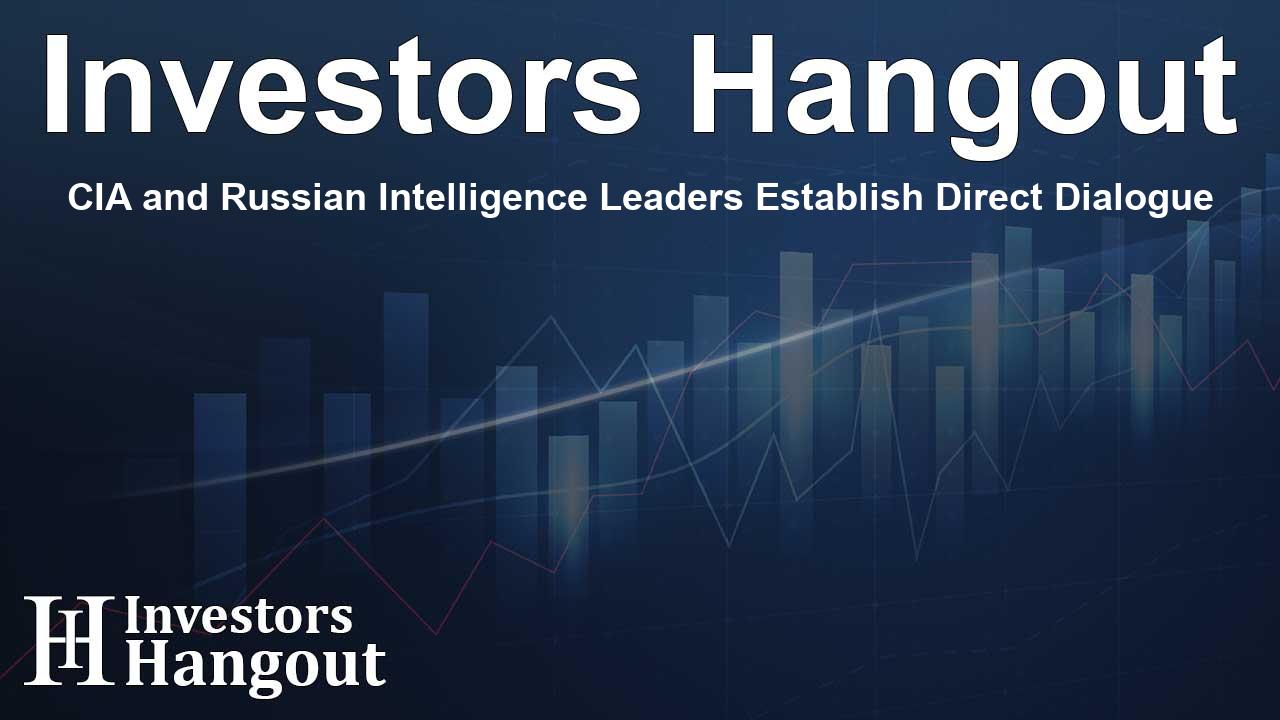CIA and Russian Intelligence Leaders Establish Direct Dialogue

Direct Communication Between CIA and Russian Intelligence
In a significant development, Sergei Naryshkin, the head of Russia’s Foreign Intelligence Service (SVR), has announced that he and CIA Director John Ratcliffe will maintain direct communication at all times. This agreement was revealed during an interview on state television.
Context of the Agreement
The SVR serves as the successor to the infamous KGB’s First Chief Directorate. Despite historical rivalries, both intelligence leaders recognize the importance of keeping an open dialogue, particularly in these uncertain geopolitical times.
Naryshkin shared, “I had a phone call with my American counterpart and we reserved for each other the possibility to call each other at any time and discuss issues of interest to us.”
Historical Context
This latest agreement is not isolated; previous communications have taken place between the two intelligence chiefs. Their last documented exchange reportedly occurred in March of the past year, marking a trend towards more direct coordination amidst international tensions.
Historically, the SVR has been associated with several significant breaches of U.S. security, including betrayal from notable moles like Robert Hanssen and Aldrich Ames, leading to a reevaluation of communication strategies between the two nations.
Significance of Communication
Given the current climate of heightened tensions, particularly relating to conflicts such as the ongoing situation in Ukraine, this agreement to maintain an open line of communication is noteworthy. It symbolizes a potential for diplomatic dialogue, even in difficult circumstances.
As the U.S. navigates its foreign policy concerning Russia, direct communication could facilitate understanding and potentially alleviate conflicts arising from misunderstandings.
Impacts on U.S.-Russia Relations
This development comes at a time when the U.S. government's stance on Russia has generated significant discussion. With involved parties expressing various positions, the establishment of a communication line between the two intelligence agencies may serve as a step towards decreasing the risk of miscalculations that could escalate conflicts.
President Donald Trump has recently acknowledged the complexities of the U.S.-Russia relationship, emphasizing the importance of communication in finding resolutions.
Current Events and Broader Implications
Moreover, recent statements by President Vladimir Putin calling for restrictions on foreign tech services, such as Microsoft Corporation MSFT and Zoom Communications Inc. ZM, have stirred reactions, illustrating the broader implications of U.S.-Russia interactions.
As Russia aims to assert its technological sovereignty, the intelligence community's ability to communicate effectively carries weight for international relations as a whole.
Future Outlook
Looking ahead, the ongoing rapport between Ratcliffe and Naryshkin could shape future intelligence operations and policy-making. By solidifying this direct line of communication, there lies the possibility for more informed decisions that affect national security strategies for both the United States and Russia.
Frequently Asked Questions
What is the significance of the communication agreement?
The agreement signifies a recognition of the necessity of dialogue between intelligence agencies, even amidst tensions, to prevent misunderstandings and facilitate diplomacy.
When did the last communication between the two leaders occur?
The last known conversation between Sergei Naryshkin and John Ratcliffe took place in March of the previous year.
What role does the SVR play in Russian intelligence?
The SVR is the primary foreign intelligence agency in Russia, succeeding the KGB and handling external intelligence operations.
How might this communication relate to current geopolitical issues?
This kind of communication can help mitigate risks associated with conflicts, such as those in Ukraine, by allowing direct discussions between intelligence sectors.
What are the implications of technological restrictions by Russia?
Putin’s advocacy for restrictions on foreign tech highlights the complexities of U.S.-Russia relations and could influence tech diplomacy and market dynamics.
About The Author
Contact Evelyn Baker privately here. Or send an email with ATTN: Evelyn Baker as the subject to contact@investorshangout.com.
About Investors Hangout
Investors Hangout is a leading online stock forum for financial discussion and learning, offering a wide range of free tools and resources. It draws in traders of all levels, who exchange market knowledge, investigate trading tactics, and keep an eye on industry developments in real time. Featuring financial articles, stock message boards, quotes, charts, company profiles, and live news updates. Through cooperative learning and a wealth of informational resources, it helps users from novices creating their first portfolios to experts honing their techniques. Join Investors Hangout today: https://investorshangout.com/
The content of this article is based on factual, publicly available information and does not represent legal, financial, or investment advice. Investors Hangout does not offer financial advice, and the author is not a licensed financial advisor. Consult a qualified advisor before making any financial or investment decisions based on this article. This article should not be considered advice to purchase, sell, or hold any securities or other investments. If any of the material provided here is inaccurate, please contact us for corrections.
